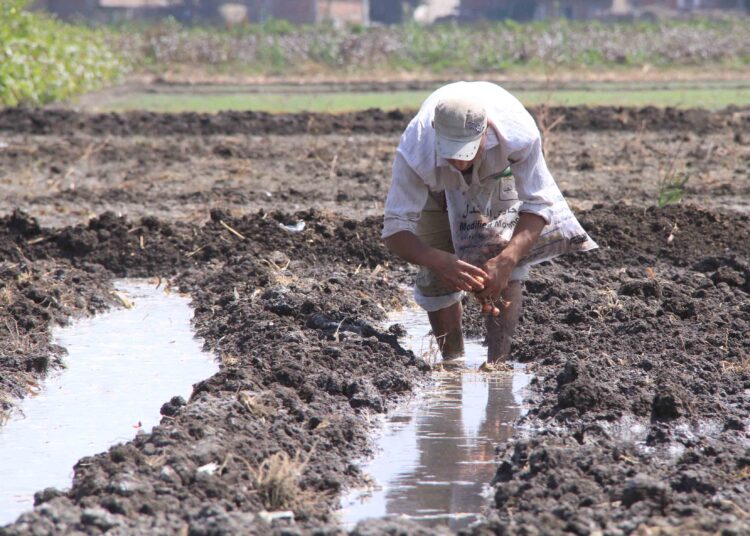Farmers are expressing fears about the future of their land as the crisis over Ethiopia’s Nile dam intensifies amid expectations that the dam will deprive Egypt of sizeable amounts of water, especially during the filling of its reservoir.
Egypt and Sudan have already taken the case of the Ethiopian dam, constructed on Blue Nile which gives Egypt most of its share from the Nile every year, to the United Nations Security Council.
This measure gives millions of farmers confidence that the government is doing everything it can to protect Egyptians’ rights to the Nile River.
However, there are real fears among the nation’s farmers that the Ethiopian dam project will negatively affect their ability to keep irrigating their farmland and continue producing food, according to Saddam Abu Hussein, the head of the independent union of farmers.
“Everybody is following developments on this issue with concern,” Abu Hussein said. “Nevertheless, they have confidence in the ability of the government to protect Egypt’s water rights,” a local newspaper quoted him as saying.
The fears of the nation’s farmers are credible and based on facts. Egypt is water-poor already and the Ethiopian dam, technically known as GERD, will make this water poverty even worse.
Egypt obtains 55.5 billion cubic metres from the Nile every year. However, the populous nation needs 114 billion cubic metres to meet the needs of its people, agriculture and industry.
Egypt has to depend on sewage treatment and underground water. It also imports 34 billion cubic metres of water in food from other countries every year. This does not come cheap.
“The filling and the operating of the dam will negatively affect Egypt’s ability to produce food,” agriculture expert Adel Barakat said. “It will cause agricultural production in some areas to stop and some agricultural investment companies to go bankrupt.”
Egypt has been negotiating with Ethiopia over the dam for a decade now, even without reaching any tangible results.
The Egyptian referral of the dam case to the United Nations Security Council is seen by some people as a sign of desperation with Ethiopia, which refuses to sign a legally-binding deal on the filling and the operation of the dam.
The Ethiopians skipped the signing of an agreement sponsored by the administration of former US president Donald Trump.
When the case was referred to the African Union, Ethiopian representatives in the negotiations kept their Egyptian and Sudanese peers busy discussing complex technical issues that wasted time and concluded without an agreement.
Egypt says it is not against Ethiopia’s development, but only wants to ensure that Ethiopia will discharge amounts of water from the dam enough to satisfy Egyptians’ needs every year.
Together with negotiating, Egypt has been working to improve the efficiency of the management of its water resources to make the best use of each drop of water it gets from the Nile.
Before the end of 2020, Egypt launched the Water Resources Management Strategy, which will last until 2050.
The strategy will cost the government $50 billion to be implemented.
Apart from modernising the nation’s irrigation systems and persuading farmers to switch from surface irrigation to more water-efficient irrigation techniques, the government is now lining thousands of kilometres of irrigation canals to save water and ensure that water will reach all farmland, even in the remotest areas.
Nevertheless, the dam will have devastating effects on Egyptian agriculture, according to studies.
Agriculture contributes 15 per cent of Egypt’s GDP and 20 per cent of the Arab country’s overall exports. Around 60 per cent of Egyptians also live in rural areas and depend on agriculture for their livelihoods.
Some studies estimate the loss to agricultural production at billions of dollars every year during the filling of the Ethiopian dam reservoir. There will also be massive loss of farmland during the filling of the reservoir.
“Around 2 million feddans (acres) of farmland will become desert because of the water shortages caused by the Ethiopian dam,” said Sherif el-Gabali, another agriculture expert. “This makes up almost 20 per cent of all the farmland in our country.”






Discussion about this post